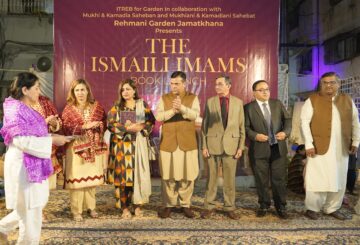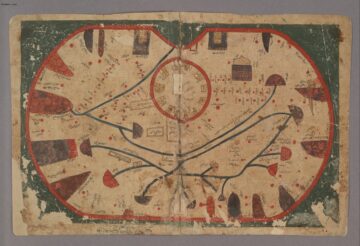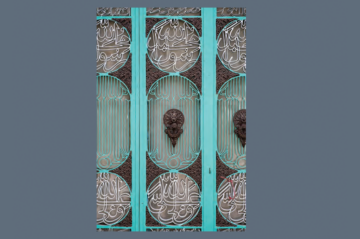Two recent IIS publications were launched at the Ismaili Centre in Dubai. These included The IsmailisAdherents of a branch of Shi’i Islam that considers Ismail, the eldest son of the Shi’i Imam Jaʿfar al-Ṣādiq (d. 765), as his successor.: An Illustrated History and An Anthology of Qur’anic Commentaries – Vol. 1: On the Nature of the Divine. Held on 3 April 2009, the programme marked the Institute’s first major book launch in that region.
Mr Mohamed Keshavjee, a member of the Institute’s Board of Governors, commenced the programme with an overview of IIS’ contributions to the promotion of scholarship and learning of Muslim cultures and societies through the production of publications and other academic resources. Mr Keshavjee also shared the rationale behind each of the publications being launched.
Introducing the first of these publications, Dr Farhad Daftary, Acting Director of the IIS, discussed the Institute’s contributions to scholarship on Islam, particularly through its Department of Academic Research and Publications. He highlighted the Institute’s forthcoming series of accessible publications aimed at a wider audience, including non-specialist readers. Dr Daftary then focussed on The Ismailis: An Illustrated History, which is the first such publication produced by the IIS. Based on modern scholarship in Ismaili Studies and the broader field of Islamic Studies, the book offers a comprehensive and accessible account of the history of the Ismailis as well as their intellectual and cultural achievements, set in the wider contexts of Muslim and world history.
Dr Feras Hamza then introduced the second book launched at this programme, An Anthology of Qur’anic Commentaries – Volume 1: On the Nature of the Divine. Dr Hamza, formerly a Research Associate at the IIS and currently Assistant Professor of Middle Eastern Studies at the American University in Dubai, shared his experiences during the writing and production of this publication. The anthology, part of the IIS’ Qur’anic Studies Series, brings together the works of twenty selected Sunni, Shi‘i (including Ithna‘ashari and Ismaili), Ibadi, Mu‘tazili and Sufi commentators (mufassirun) on six different Qur’anic verses. This spectrum of commentaries highlights the varied approaches to the Holy Qur’an(also Koran. Arabic term meaning, ‘recitation’ or ‘scripture’): Muslims believe that the Holy Qur’an contains divine revelations to the Prophet Muhammed received in Mecca and Medina over a period of… More and records the rich diversity and plurality of approaches and opinions which have appealed to it throughout Muslim history. The book also provides contextual notes and historical background to these commentaries.
Attended by over 400 participants, the event was followed by an exhibition and cultural programme organised by the Ismaili Council for the United Arab Emirates.






